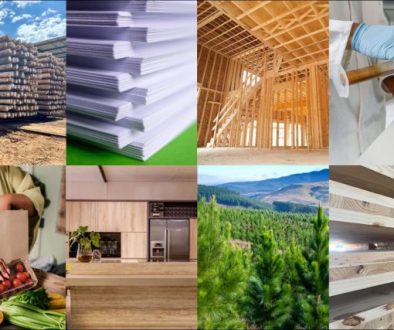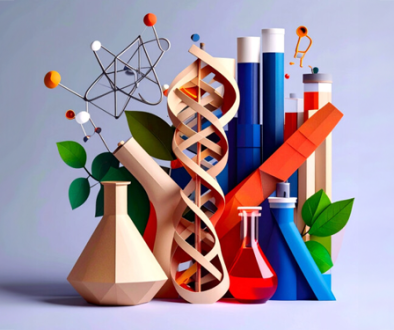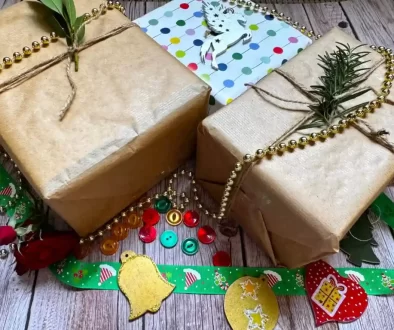Discover the treasure in your trash
Between September 14 and 19, we celebrate Clean-up South Africa and Recycle Week to encourage citizens countrywide to recycle as a means of preventing ‘treasured trash’ from taking up precious space in landfills and extending its usable life as a new product.
Organisations like the Paper Recycling Association of South Africa (RecyclePaperZA) are working towards a ‘recycling-minded’ society by teaching ordinary people how they can make an extraordinary difference – with everyday items.
“Separating paper and cardboard products from home, school and office waste and keeping it aside for conversion into other products has many benefits, both for the environment and the people who make a living by collecting recyclables and selling them on to buy-back centres and paper manufacturers,” says RecyclePaperZA operations director Ursula Henneberry.
RENEWABLE AND RECYCLABLE
The paper products we come into daily contact with – ranging from office paper and newspapers, medicine boxes and magazines, juice and milk cartons to cardboard cores from toilet rolls – can all be recycled.
They are also completely renewable because, at some point, their fibre would have come from sustainably and responsibly farmed trees that are planted, grown, harvested and replanted in cycles.
Recycling also keeps the carbon originally stored in the wood fibre of trees locked in paper products and out of the atmosphere for longer.
Unfortunately large quantities of paper still end up in landfills, which are rapidly running out of space, and add to greenhouse gas emissions when paper decomposes with other waste.
“During 2014, 64% of recoverable paper was recycled, 2% more than in 2013 and 5% more than in 2012,” says Henneberry. “For every tonne of paper recycled, up to three cubic metres of landfill space is saved – land that could be better used for housing, agriculture and infrastructure. During 2014, South Africans recycled 1.1 million tonnes, enough to fill 1,276 Olympic-sized swimming pools.”
But we need to do more. It is estimated that only 5% of households recycle paper.
RecyclePaperZA advises that householders keep recyclables aside for an informal collector who walks your neighbourhood every week. “This increases the quality of the recyclables, allowing the collector to earn a little more.”
TRASH IS TREASURE
“In a country with high unemployment rates and accompanying poverty, paper recycling is becoming a source of revenue for a growing number of people. An estimated 35,000 people put food on their tables by walking the streets to collect ‘waste’ in return for cash or work for larger companies to recover, sort and weigh recyclables for conversion into usable and commercially viable products.
The pulp and paper manufacturing industry is a key sector in the South African economy. Importantly, it employs a workforce of more than 150,000 people across the value chain – from forestry, to pulp and paper manufacturing to informal collectors. These people in turn collectively feed, clothe and school around 900,000 dependants.
“Companies that produce paper products run major mills specifically designed to turn today’s phonebooks, magazines, notepads, company minutes, milk cartons and cereal boxes into tomorrow’s egg containers, corrugated boxes and board, newspapers and tissue products,” states Henneberry.
“Some 65% of recovered paper is used as fibre, without which these mills would stand idle, unable to manufacture the pulp used to produce materials for products manufactured in South Africa and exported around the world.”
You can get involved by separating all kinds of refuse, starting with paper and moving on to plastics, glass and cans.
Paper products you can recycle:
- all office paper
- coloured paper
- newspaper, magazines (even glossy ones)
- catalogues, phonebooks
- direct marketing leaflets
- cardboard packaging of all kinds, shapes and sizes – boxes used for moving; electronics, shoes, gifts and cereal
- paper towel and toilet paper cores
- food packaging (unwaxed only please)
- shredded paper (in plastic bag to minimize blow-away)
- milk, juice and liquid cartons (should be empty)
- books: all soft cover, hard or plastic covers should be ripped off
- pizza boxes (food and wax paper removed)
- brown paper bags
Remember, paper should be separated from wet waste so it does not get contaminated.
Paper products you shouldn’t recycle
- Tissue paper and paper towel
- Wax paper
- Used cement and dog food bags
- Disposable nappies
- Plastic lined papers
- Foil lined papers
RECYCLING PROGRAMMES
- Visit mywaste.co.za for programmes in your area.
- Enrol in a free kerbside collection programme.
- Find a drop-off centre near your home or office, usually at local shopping centres.
- Check with local community centres, places of worship or schools if they have a paper recycling programme from which they benefit financially.
- Contract the services of a small recycling business.
Clean-up SA and Recycle Week takes place between September 14 and 18, and National Recycling Day is celebrated on Friday, September 18. International Coastal Clean-up Day takes place on Saturday, 19 September.



